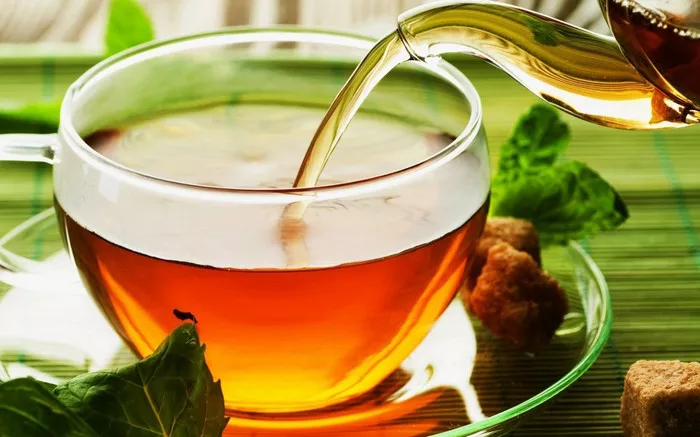Tea, a time-honored elixir revered for its soothing properties and diverse flavors, has long been cherished as a remedy for various health concerns. Among the many potential benefits of tea consumption, its role in managing high blood pressure stands out as a subject of considerable interest and research. In this article, we embark on a journey through the world of tea to uncover the best varieties that hold promise for supporting healthy blood pressure levels. From ancient traditions to modern scientific insights, we delve into the realm of tea to explore its potential as a natural ally in the quest for cardiovascular wellness.
Understanding High Blood Pressure
Before we dive into the realm of tea, it’s crucial to understand the significance of high blood pressure, also known as hypertension.
1. The Stealthy Culprit
High blood pressure, often referred to as the “silent killer,” is a condition in which the force of blood against the walls of the arteries is consistently too high. This persistent strain on the arteries can lead to serious health complications, including heart disease, stroke, and kidney problems.
2. A Global Concern
Hypertension is a global health concern, affecting millions of people worldwide. Factors such as genetics, lifestyle, and diet play significant roles in the development and management of high blood pressure.
Tea’s Healing Brew: Navigating the Options
Tea, a beverage derived from the leaves of the Camellia sinensis plant, has captured the fascination of cultures for centuries. Within the world of tea, certain varieties have gained attention for their potential to support cardiovascular health and contribute to the management of high blood pressure.
1. Green Tea: The Elixir of Antioxidants
Green tea, celebrated for its vibrant color and delicate flavor, is renowned for its rich antioxidant content. The key antioxidant in green tea, known as catechins, has been linked to various health benefits, including the potential to relax blood vessels and support healthy blood pressure levels.
2. Black Tea: The Dark Horse
Black tea, known for its robust flavor and deep color, has also been explored for its potential cardiovascular benefits. Studies suggest that the flavonoids present in black tea may contribute to improved arterial function and blood pressure regulation.
3. Hibiscus Tea: A Tart Remedy
Hibiscus tea, made from the vibrant petals of the hibiscus flower, has gained attention for its potential to lower blood pressure. Research indicates that compounds in hibiscus may have a diuretic effect and promote relaxation of blood vessels, which can contribute to a reduction in blood pressure levels.
4. Rooibos Tea: A Caffeine-Free Choice
Rooibos tea, crafted from the leaves of the South African Rooibos plant, offers a caffeine-free option for those seeking a soothing beverage. Rich in antioxidants and flavonoids, rooibos tea has been studied for its potential to support cardiovascular health and promote relaxation.
5. Oolong Tea: The Balanced Brew
Oolong tea, with its unique semi-oxidized processing, strikes a balance between the qualities of green and black teas. While research specific to oolong and blood pressure is limited, its potential contribution to overall well-being makes it a tea worthy of consideration.
How Tea May Impact Blood Pressure
The potential benefits of tea for managing high blood pressure are attributed to a range of bioactive compounds that interact with the cardiovascular system.
1. Relaxation of Blood Vessels
Certain compounds in tea, such as catechins and flavonoids, have been studied for their ability to promote the relaxation of blood vessels, a mechanism that may contribute to improved blood flow and lower blood pressure levels.
2. Diuretic Effects
Some teas, including hibiscus, possess diuretic properties that encourage the excretion of excess fluids and sodium from the body. This process can have a favorable impact on blood pressure by reducing the overall volume of blood circulating through the vessels.
3. Antioxidant Power
Teas are rich in antioxidants, which play a crucial role in protecting cells and tissues from oxidative stress. Oxidative stress has been linked to inflammation and damage to blood vessels, potentially contributing to high blood pressure and other cardiovascular issues.
4. Nitric Oxide Production
Nitric oxide is a molecule that helps relax blood vessels and supports healthy blood pressure levels. Some compounds in tea, such as catechins, may stimulate the production of nitric oxide, contributing to improved vascular function.
5. Managing Stress
The act of brewing and savoring a cup of tea can have a calming effect on the mind and body. Managing stress is important for overall cardiovascular health, as chronic stress is associated with elevated blood pressure.
How to Optimize Tea Consumption
While tea shows promise in supporting healthy blood pressure levels, it’s important to approach its consumption mindfully and incorporate it into a balanced lifestyle.
1. Variety and Moderation
Variety is key when it comes to tea consumption. Each type of tea offers a unique profile of bioactive compounds, so incorporating a range of teas can provide a broader spectrum of potential benefits. Additionally, moderation is advised, as excessive consumption of certain teas, such as those high in caffeine, may have adverse effects.
2. Brewing Techniques
The method of brewing tea can impact its flavor and nutrient content. Steeping tea at the appropriate temperature and for the recommended duration can help extract the desired compounds without overbrewing or diminishing their potency.
3. Lifestyle Factors
While tea can be a valuable addition to a heart-healthy lifestyle, it’s important to recognize that managing high blood pressure requires a comprehensive approach. Adopting a balanced diet, engaging in regular physical activity, managing stress, and adhering to medical recommendations are all integral components of maintaining optimal cardiovascular health.
4. Consultation with Healthcare Professionals
Individuals with high blood pressure or other cardiovascular concerns should consult their healthcare providers before making significant changes to their diet or lifestyle. Tea can complement a well-rounded wellness strategy, but personalized guidance is essential.
The Interplay of Tradition and Science
The affinity for tea spans centuries and cultures, and its potential benefits for managing high blood pressure bridge the gap between traditional wisdom and modern research.
1. Ancient Traditions
In cultures where tea has been consumed for generations, such as China and Japan, the practice of tea consumption is steeped in tradition and mindfulness. The rituals surrounding tea ceremonies reflect a deep appreciation for the interplay between nature, nourishment, and well-being.
2. Scientific Exploration
Modern scientific research continues to shed light on the potential mechanisms through which tea may impact blood pressure. Studies, both in vitro and in humans, provide insights into the bioactive compounds that contribute to the cardiovascular benefits of tea.
3. Holistic Wellness
Tea’s potential role in managing high blood pressure aligns with a broader movement toward holistic wellness. Embracing natural remedies and lifestyle practices that support overall health resonates with the desire for well-rounded and sustainable self-care.
Conclusion
Tea, a beloved beverage cherished for its comforting rituals and diverse flavors, holds the promise of supporting healthy blood pressure levels. From the antioxidant-rich green tea to the vibrant hibiscus infusion, each variety offers a unique profile of bioactive compounds that interact with the cardiovascular system. As individuals embark on their wellness journeys, tea can serve as a soothing and nourishing ally, blending ancient traditions with modern insights in the pursuit of optimal cardiovascular health.






















